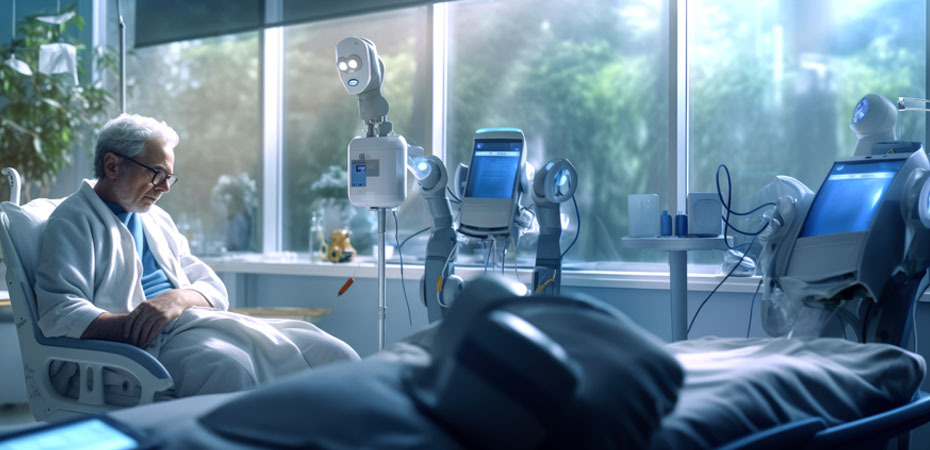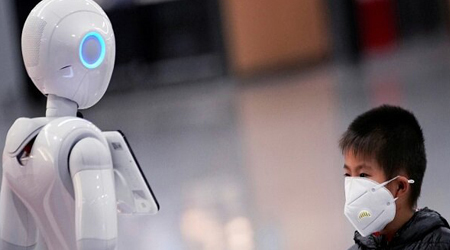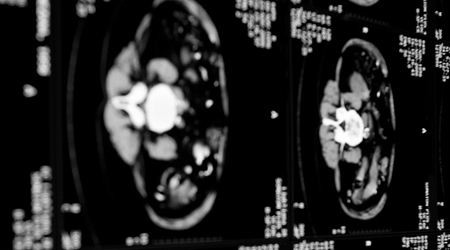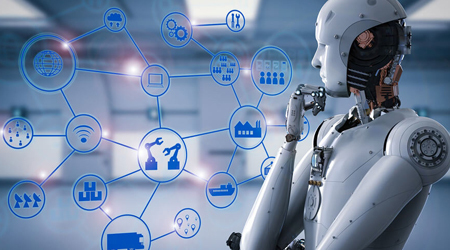Impact of Artificial Intelligence on Healthcare Operations and Users
 By Anolytics | 17 February, 2024 in AI in Healthcare | 3 mins read
By Anolytics | 17 February, 2024 in AI in Healthcare | 3 mins read

Statista has estimated that the artificial intelligence (AI) healthcare market valued at $11 billion in 2021 will be worth $187 billion in 2030. This has implications with regards to the way medical providers, hospitals, pharmaceutical and biotechnology companies and many others operate. Enhanced machine learning (ML) algorithms, more access to data, cheaper hardware and 5G availability have all led to increase in AI application in the healthcare industry hastening the pace of change. AI and ML technologies are able to sift through vast volumes of health data obtained from health records, clinical studies to genetic information to be able to analyze it at a faster rate than humans.
Role of AI in Enhancing Efficiency of Healthcare Operations
- Administrative Workflow: AI can assist healthcare workers by automating everyday mundane tasks like paperwork and other administrative tasks. It frees them from doing other activities enabling them to interact directly with patients. For instance, generative AI can assist clinicians in taking notes and summarizing content to keep medical records up-to-date. It also assists with billing and accurately coding and sharing information among departments.
- Virtual Nursing Assistants: These include chatbots, apps and other interfaces which can be used for helping answer queries regarding medicines, forward reports to doctors or surgeons and assist patients in scheduling a visit with a physician. These types of routine tasks can assist in taking work away from clinical staff enabling them to invest more time on patient care which prioritizes human judgement and interaction.
- Dip in Dosage Error: AI helps in identifying errors regarding self-administration of medications by patients. For instance, an AI tool can be placed in the patient’s background for flagging errors with regard to the administration of insulin by the patient.
- Less Invasive Surgeries: Robots powered by AI can be used during surgeries for working around sensitive organs and tissues. This will help in limiting blood loss, risk of infection and post-surgery pain.
- Prevention of Fraud: AI implementation assists in recognizing unusual or suspicious patterns in insurance claims like billing for expensive services or procedures which have not been performed, unbundling and carrying out of unnecessary tests for deriving benefit from insurance payments.
Role of AI in Enhancing Heatlthcare User’s Experience
- Clear and Effective Communication: AI technologies including natural language processing (NLP), predictive analytics and speech recognition ensures clear and effective communication between healthcare providers and patients. AI helps in delivering specific information regarding patients’ treatment options so that healthcare providers can have a more meaningful conversation with the patient.
- Increases Efficiency of Healthcare Diagnoses: AI technology helps in improving breast cancer risk prediction. An AI algorithm can be trained on a larger set of images than a radiologist. It can be replicated at zero cost. ML techniques can assist in identifying abnormalities, detecting fractures, tumors and other conditions. Clinical testing offers vital information for diagnoses, treatment, and monitoring of diseases.
- Improved Health Monitoring and Preventive Care: The popularity of health apps in tracking and analyzing details regarding health permits sharing of real-time data with doctors for monitoring health issues and issuing alerts. Apart from this, AI solutions including big data applications, machine learning algorithms and deep learning algorithms can also be utilized for assisting humans in analyzing large datasets.
- Connecting Disparate Healthcare Data: AI assists healthcare providers in tracking patient data efficiently. It assists healthcare providers in gathering information, storing and analyzing it for offering data-driven insights from a large group of people. The use of this information can assist healthcare professionals in determining the best way to treat and manage diseases.
In summary, the integration of AI in healthcare will see revolutionizing of patient care and outcomes. AI-boosted predictive analytics will boost the accuracy, efficiency and economic viability of disease diagnoses along with laboratory testing. AI will also help in managing the health of the population by offering real-time, accurate information as well as optimizing medication choices.
please contact our expert.
Talk to an Expert →
You might be interested

- AI in Healthcare 27 Mar, 2020
How Big Data & AI is used in Healthcare System to Combat Coronavirus Outbreak?
Coronavirus or scientific name COVID-19, is one the most deadly virus of the century infected more than half of the mill
Read More →
- AI in Healthcare 16 May, 2020
Best Diagnostic Imaging Techniques for Using AI in Medical Diagnosis
Artificial intelligence (AI) and machine learning have enough potential to make various tasks in the healthcare industry
Read More →
- AI in Healthcare 11 Dec, 2020
Best Uses of Artificial Intelligence in Dentistry
Artificial intelligence (AI) is a branch of computer science that describes the research and development of computer-gen
Read More →